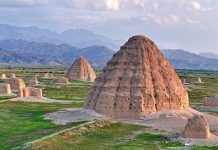
Twenty-two years ago, when then Goldman Sachs Chief Economist Jim O’Neill coined the term “BRIC”—an acronym for Brazil, Russia, India, and China—to highlight the growth potential of the four countries, he may not have imagined how their rise would reshape the global economy and global governance.
BRIC was later expanded to BRICS, with South Africa becoming the fifth member in December 2010. It now represents about a quarter of the world’s gross domestic product (GDP) and about 40 percent of the world’s population. According to UK-based research firm Acorn Macro Consulting, BRICS is now the largest GDP group in the world in terms of purchasing power parity, which is a measure of the price of specific goods in different countries and is used to compare the absolute purchasing power of the countries’ currencies.
On August 22-24, the 15th BRICS Summit took place in Johannesburg, South Africa’s most populous city. The event brought together Chinese President Xi Jinping, Brazilian President Luiz Inácio Lula da Silva, Indian Prime Minister Narendra Modi and South African President Cyril Ramaphosa at the Sandton Convention Centre, with Russian President Vladimir Putin joining via video link, and called on the countries to uphold fairness and justice and improve global governance.

More members
In his speech at the 15th BRICS Summit on August 23, Xi laid out a broad vision for expanding BRICS cooperation, calling on the group to promote high-quality partnerships, make global governance fairer and more equitable, and inject more security, stability and positive energy into the world.
For the first time in 13 years, since South Africa became the newest member, BRICS is once again seeing membership expansion. So far, more than 40 countries have expressed their willingness to join the cooperation mechanism, and more than 20 of them have formally submitted their applications. Six countries, namely Argentina, Egypt, Ethiopia, Iran, Saudi Arabia and the United Arab Emirates, have been invited to become BRICS members as of January 1, 2024, according to a press conference during the summit on August 24.
Noting that plenty of countries are interested in BRICS membership, Evandro Menezes de Carvalho, a professor at and head of the Brazil-China Center at FGV Law School in Brazil’s Rio de Janeiro, said this demand has emerged in response to international uncertainties.
He Wenping, a researcher with the Chinese Academy of Social Sciences Institute of West-Asian and African Studies, said the enthusiasm demonstrates the vitality, influence and attractiveness of the BRICS mechanism. “Over the past years, BRICS has stood firm against the West’s pessimistic rhetoric,” she said, adding that in the face of the surging exclusionism and protectionism, the five BRICS members have adhered to the principles of openness and cooperation.
Xu Feibiao, Director of the China Institutes of Contemporary International Relations (CICIR) Center for BRICS and G20 (Group of 20) Studies, told Beijing Review that the BRICS cooperation mechanism is not yet mature, but its vitality has been verified. Many countries want to join the BRICS family because they’re dissatisfied with the existing Western-dominated international order that mainly serves the interests of Western developed countries rather than those of the international community at large, and developing nations in particular.
Many countries believe that financial institutions such as the International Monetary Fund and the World Bank have neither prevented financial crises nor helped solve their development problems over the years, Xu said, adding that since the contribution of BRICS countries to global economic growth has exceeded that of the Group of Seven (G7) industrialized nations, these countries (consisting of Canada, France, Germany, Italy, Japan, the UK, the United States, with the European Union as a non-enumerated member) now believe that joining hands with BRICS will benefit their economies.
“BRICS countries gather not in a closed club or an exclusive circle, but a big family of mutual support and a partnership for win-win cooperation,” Xi said while hosting the 14th BRICS Summit in Beijing via video link last year.
“Countries add to BRICS through practical cooperation,” He Wenping said while taking the establishment of the New Development Bank (NDB) as an example, adding that the bank has played its role in boosting global growth.
Headquartered in Shanghai, the NDB was established by the five BRICS members in 2015 to mobilize resources for infrastructure and sustainable development projects in BRICS and other emerging markets and developing economies, complementing the efforts of multilateral and regional financial institutions for global development.
In 2021, the NDB initiated membership expansion and admitted Bangladesh, Egypt, the United Arab Emirates and Uruguay as its new members.
On August 15, the bank issued its first South African rand bond on the South African bond market. It is the bank’s ambition to provide loans in the U.S. dollar, the euro as well as other currencies, especially the currencies of member countries, Leslie Maasdorp, Vice President and Chief Financial Officer of the NDB, told Xinhua News Agency.

For the world
China plays a critical role within the BRICS mechanism and is “providing leadership to the emerging markets in the Global South,” Maasdorp said. The Global South is a term that broadly comprises countries in the regions of Africa, Latin America and the Caribbean, Asia (without Israel, Japan and the Republic of Korea), and Oceania (without Australia and New Zealand), according to the United Nations Conference on Trade and Development. Most countries in the Global South are characterized by low income, dense population, poor infrastructure and often political or cultural marginalization.
In He’s view, the BRICS grouping serves as the most important platform for emerging markets and major developing countries to strengthen dialogue and cooperation, as well as the most important channel for the Global South to carry out strategic communication.
As early as in 2017, Xi said at the BRICS Business Forum that “as a cooperation platform with global influence, BRICS cooperation is more than about our five countries. Rather, it carries the expectations of emerging markets and developing countries and indeed the international community at large.”
China has accelerated BRICS cooperation with its support for multilateralism, Carvalho continued. Over the years, the BRICS Plus initiative, a program proposed by China in 2017 that seeks to create a new platform for forging regional and bilateral partnerships across continents, has been seeing expansion, becoming a model for countries to carry out South-South cooperation and achieve strength through unity, He said.
If other large countries in the Global South,
including Iran and Saudi Arabia, are admitted to the group, its economic and demographic significance will increase dramatically and reinforce a reorientation of trade and investment and the integration of producers from BRICS Plus economies into regional and global value chains that are already underway, Michael Dunford, a visiting professor at the Chinese Academy of Sciences Institute of Geographical Sciences and Natural Resources Research, wrote in an op-ed for newspaper China Daily’s website.
In his summit speech, Xi said, “We must fully utilize the role of the NDB, push forward the reform of the international financial and monetary system, and increase the representation and voice of developing countries.”
BRICS’ recent progress could signal the end of a more than 500-year-long era in which Western nations have dominated world affairs and the emergence of a new multipolar world characterized by fairer and more democratic rules and a greater quest for collective solutions to global problems, Dunford summarized.

Renewed friendship
Prior to arriving in South Africa for the BRICS summit and a state visit, Xi said in a signed article published in South African media that the blossoming China-South Africa relationship “has entered a ‘golden era’ and enjoys broad prospects and a promising future.”
The town of Atlantis, near Cape Town, lost its industries after the end of apartheid in South Africa in the early 1990s. Today, it’s becoming a major manufacturing hub for the country’s renewable energy sector. Its transformation was catalyzed by the establishment of a factory by Chinese consumer electronics company Hisense right in the heart of this once sleepy town in 2013.
About 700 km to the east of Atlantis, Chinese automaker BAIC has been rolling out cars from the assembly line at its South African plant near the auto export hub of Port Elizabeth since 2018.
Both plants are key contributors to the creation of employment opportunities for their host cities. Hisense, for example, now employs around 700 local people, accounting for more than 90 percent of its total workforce, and has created more than 4,000 indirect job opportunities.
Hisense and BAIC are among the many Chinese corporations involved in local economic development in South Africa. As Xi said in his signed article, many Chinese companies are expanding their business activities in South Africa and at the same time are taking on more social responsibility.
Chinese-brand automobiles and home appliances, which are manufactured in the African country, are very popular with local consumers and are now found in many households.
Since China and South Africa established diplomatic relations in 1998, bilateral ties have developed comprehensively and rapidly.
China has been South Africa’s largest trading partner for 14 consecutive years. In the first half of 2023, bilateral trade reached $28.25 billion, up 11.7 percent year on year. South Africa is one of China’s largest investment destinations in Africa. By late June, China’s investment stock in South Africa was about $10 billion.
South African companies are also racing to invest in the Chinese market to seize the abundant business opportunities, and have made important contributions to China’s economic growth, Xi wrote.
It was also the first African country to sign a cooperation document with China under the Belt and Road Initiative, Sun Hong, a researcher with the CICIR Institute of African Studies, told Beijing Review, adding that the two countries feature promising cooperation potential in finance, energy, infrastructure, e-commerce, 5G and other fields. The China-proposed Belt and Road Initiative aims to boost connectivity along and beyond the ancient Silk Road routes.
During his talks with Ramaphosa, Xi said China will expand imports of South African products and encourage more Chinese enterprises to invest in South Africa.
Based on the existing strong relations, China and South Africa should better integrate the countries’ manufacturing and supply chains to facilitate development in both, senior lecturer at Johannesburg’s University of the Witwatersrand Kenneth Creamer told Xinhua, adding that in this regard, Chinese companies should be encouraged to use South Africa as a base for supplying and servicing other countries in Sub-Saharan Africa.
Official statistics showed that bilateral trade between China and South Africa in 2022 accounted for 20.1 percent of total China-Africa trade.
In recent years, Sino-African cooperation has expanded from agriculture, infrastructure and manufacturing to new industries such as green economy, healthcare, finance and digital innovation.
Costantinos Berhutesfa Costantinos, a professor of public policy at Ethiopia’s Addis Ababa University, told Xinhua that it is a combination of political justice, mutual economic benefit, win-win cooperation and common development that laid the basis for a shared future of Africa and China. –The Daily Mail-Beijing Review news exchange item




